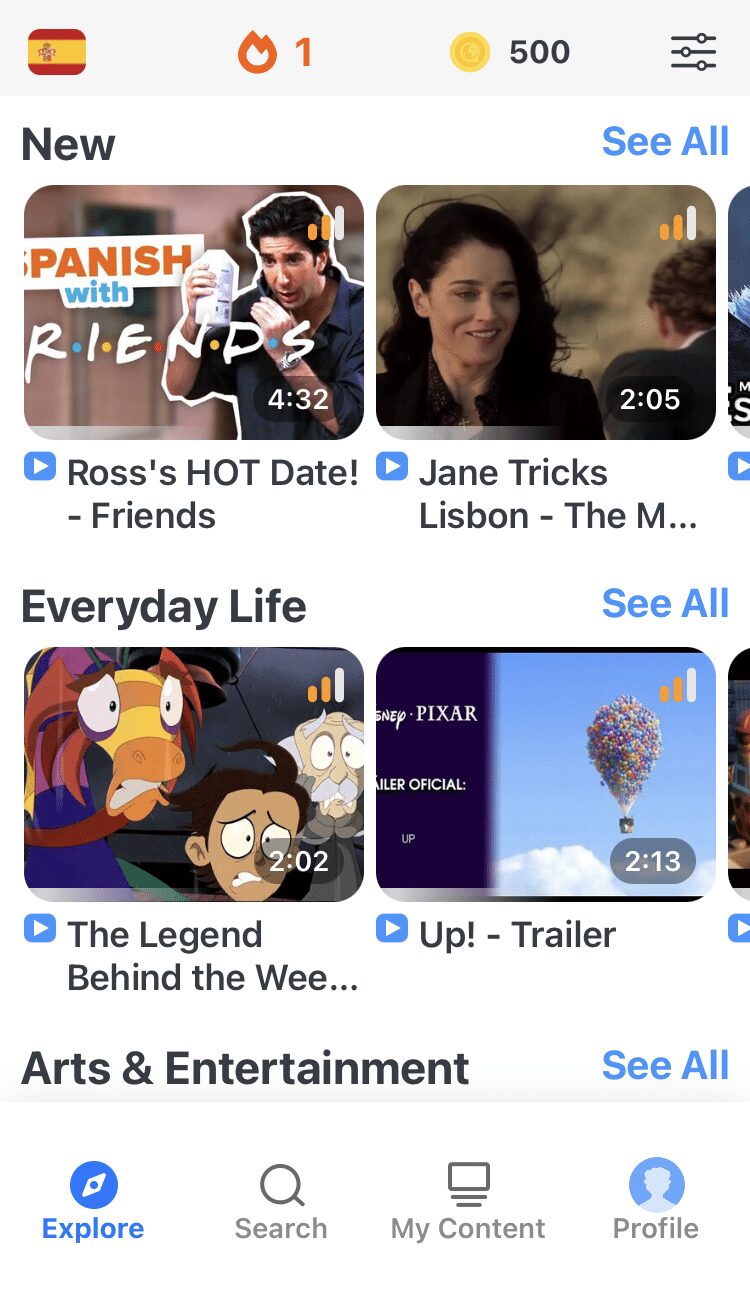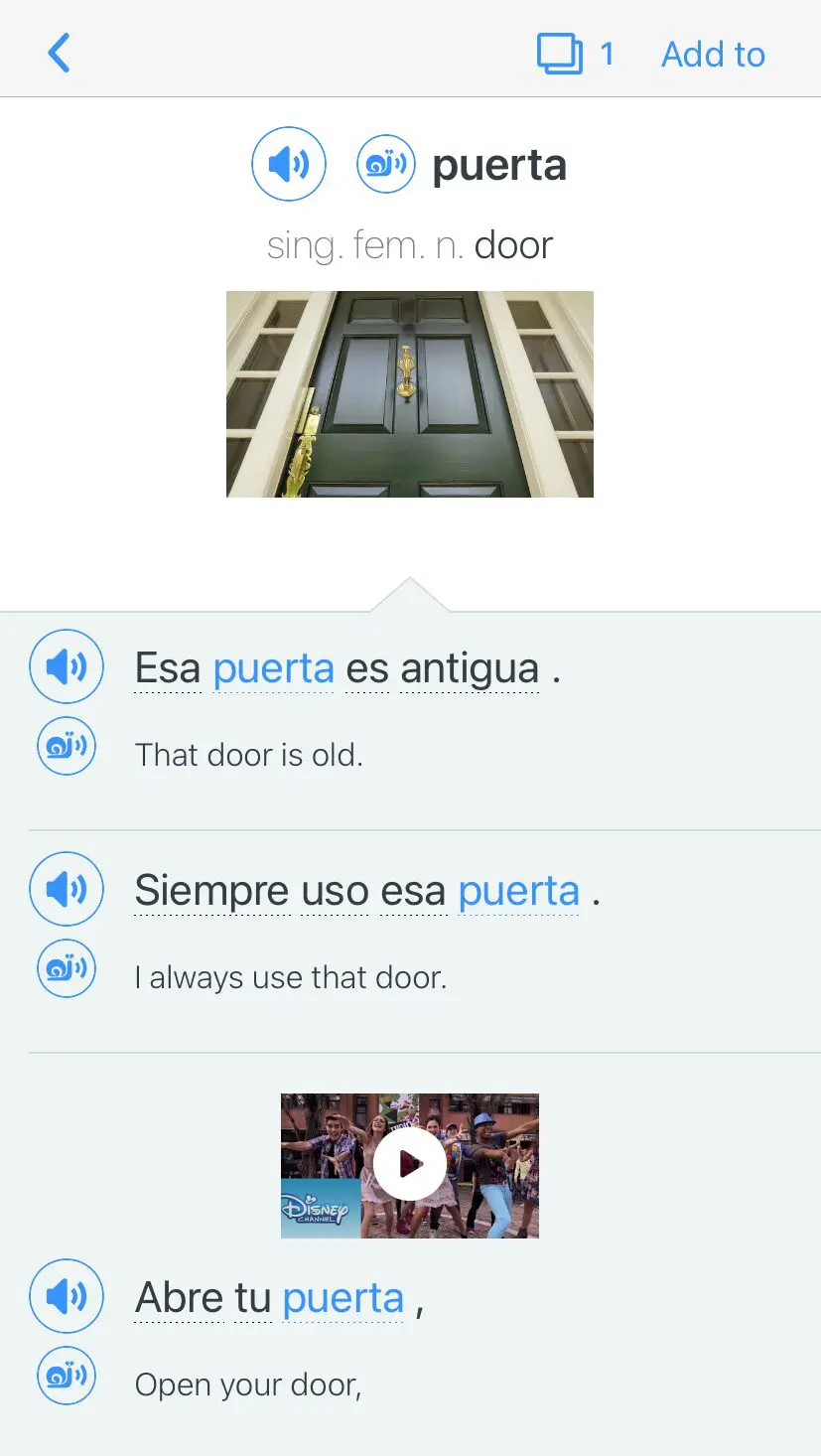Contents
- 1. Have a Language Learning Plan
- 2. Make Talking to People Part of Your Learning Schedule
- 3. Use What You’ve Already Learned
- 4. Do Things You Enjoy
- 5. Find Media Not Available in Your Native Language
- 6. Make Language Learning a Habit
- 7. Take Inventory of What’s Working
- 8. Visualize Success
- 9. Don’t be Afraid to Make Mistakes
- 10. Try to Make Language Learning Fun
- What Kills Language Learning Motivation?
- And One More Thing...
10 Strategies for Language Learning Motivation and Avoiding Procrastination

A momentary loss of your language learning motivation doesn’t have to spell the end of your language learning aspirations: What determines whether you’re ultimately successful in learning a language isn’t whether you have trouble getting motivated at times, but your ability to bounce back.
In this post, we have 10 ways to tilt the odds in your favor to get that spark back, which will make it easier to get back on track. You’ll also learn about the motivation killing factors in language learning and how to deal with them.
Download: This blog post is available as a convenient and portable PDF that you can take anywhere. Click here to get a copy. (Download)
1. Have a Language Learning Plan
Anyone who’s ever taken a trip knows that planning how to do something can be more work than actually doing the thing itself. In the case of learning a language from scratch, you have to figure out how you’re going to build up all your language skills (writing, listening, speaking, etc.) simultaneously using materials that are challenging but not too challenging.
Having to constantly worry about organizing how you’re going to learn can get tiring and boring fast. So to get this potential motivation killer out of the way, try doing as much planning in advance as possible. Draw up a language learning plan that includes a schedule, a list of what materials you’re going to use and a rough timeline.
The idea is that whenever you sit down to learn a language, you should be able to go straight to the meat of your language learning and not have to worry about deciding what to work on. Being able to follow a preexisting plan is especially helpful on days when motivation for language learning is lagging.
When you get through your plan, draw up a new language learning plan. Note that having a plan doesn’t mean you have to get stuck in a rut—having a creative, interesting plan with lots of variety will help keep things fresh and get you through the times when you’re feeling less inspired.
2. Make Talking to People Part of Your Learning Schedule
If you’re having a hard time getting excited about language learning, sometimes a little peer pressure is just what the doctor ordered. Having activities where you have to talk to other people in your target language as a regular part of your language learning schedule can make a big difference.
There are a couple reasons these activities are helpful for maintaining language learning motivation:
- Doing anything with other people can make things more interesting, and you’ll be especially glad you don’t have to go it alone during times when you’re not really feeling the language learning magic.
- Having to use the language regularly to interact with other people provides an additional incentive to keep making progress. You’ll be motivated to learn it for the sake of communicating with other people.
Face-to-face group settings are ideal for maintaining language learning motivation. Some of the activities you can try include study groups, meetups and reading groups. But if you can’t find something in your area, online language exchanges can also add an entire new dimension to the language learning experience.
Academic researchers who study language learning methods have coined a term for this motivational strategy: integrative motivation. That’s right—it’s been scientifically proven that talking to people provides you with a very uniquely effective form of motivation for language learning.
But it goes a little further. Integrative motivation is extra powerful when you care about the people you’re speaking with, so practicing with friends, family and significant others gives you an additional motivational boost. If you need to meet new people to practice with, take a strong interest in their lives and try to build a real relationship.
3. Use What You’ve Already Learned
When you’re learning a new language, it can be tempting to try to learn as much new material as possible as quickly as possible. However, if you focus exclusively on learning new material, you run the risk of burning out.
More important than learning as much as you can as fast as you can is making sure you have fun with the stuff you’ve already learned. Keep a journal, compose a song or write a poem if that’s your thing. Talk to people. Even treat yourself to a meal at an ethnic restaurant, or try cooking one at home by following a recipe in your target language.
When you’re writing up your language learning plan, keep an eye out for courses or software that give you opportunities to review material you’ve learned in interesting ways.
Using what you’ve already learned is essential to staying motivated because learning a language isn’t a black-and-white situation where either you’ve learned the language or you haven’t. Rather, you’re gradually getting to know the language better over time, and it’s important to give yourself credit for what you’ve already accomplished.
Besides, you’re learning a language for a particular reason, so once you’ve learned any amount of your language, use it!
4. Do Things You Enjoy
No matter how many language learning goals you set and how organized you are, it’s hard to stay motivated if you don’t enjoy the actual process of language learning itself. The best antidote for the language learning blahs is to make sure you’re learning language in a way that makes you constantly curious about what you’re going to do next.
One way to add this spark to your language learning life is to switch out rote studying in favor of interactive learning and games whenever possible.
Another way is to use the language for things you enjoy by reading books, watching movies, etc. By using the language for things you enjoy, you’re adding more intrinsically rewarding activities to the language learning process as opposed to just learning a language to meet an external goal.
You can also choose long-term projects to help sustain your motivation for language learning over time. For example, if you pick a book to read that’s a page turner, but that will take you a while to get through, it’ll be that much harder to give up on language learning before finding out how things end!
If you’re just starting out, you can still use this strategy to motivate yourself by challenging yourself to get to the point where it is an option to use your target language to do things you enjoy. That way you’re working towards a shorter-term goal instead of the way too broad goal of becoming fluent in the language.
For instance, try picking a simple book you want to read, then commit to reaching a level of basic reading comprehension where you can work through that book with the help of a dictionary. Once you arrive at that point, you’ll get a big motivation boost by successfully meeting a shorter-term goal and by adding a new intrinsically rewarding activity to your language learning regime.
5. Find Media Not Available in Your Native Language
An exciting aspect of learning a language is gaining access to an entire new culture (magazines, TV shows, podcasts, blogs, Twitter feeds, etc.) that you can’t get in your native language.
So if you’re looking to add a motivation boost, try consuming media only available in the language you’re learning. Besides providing a way for you to work on your language through an activity you enjoy, you’re literally using what you’ve learned to do something you would never be able to do otherwise with this technique.
It can take a little searching to find media not available in your native language. One way to do this is to look for newly released media that’s so fresh it hasn’t been translated to other languages yet. If you’re looking for books, try Googling something along the lines of “new books in [target language].” For example, the website New Books in German keeps a running list of yet-to-be-translated German books hot off the press. For best results, type the search terms in your target language.
Another way you can find such media is through an immersive language learning program that uses material made by and for speakers, such as FluentU.
FluentU takes authentic videos—like music videos, movie trailers, news and inspiring talks—and turns them into personalized language learning lessons.
You can try FluentU for free for 2 weeks. Check out the website or download the iOS app or Android app.
P.S. Click here to take advantage of our current sale! (Expires at the end of this month.)
Consuming media only available in your target language involves one of the best reasons for learning a language: gaining access to an entire new range of experiences that you’d never be able to have with only your native language.
6. Make Language Learning a Habit
Brushing my teeth isn’t something I get really excited about, but I still do it every day. What’s the key to my remarkable teeth brushing consistency?
Habit! (And visions of all my teeth falling out.)
If you make language learning a habit rather than just something you do when you feel like it, loss of motivation will become less catastrophic. Of course, motivation will still affect the quality of your language learning and you still want language learning to be something intrinsically rewarding overall, but having language learning as a regular habit woven into the fabric of your day-to-day life will make it easier to push through the times when you’re not feeling it as much. And that’s because sitting down to study language will be more automatic.
Try picking a regular learning time that you stick to religiously, either every day or on predetermined days of the week. That way your thought process will be “Well, it’s 6 p.m. on Monday, time to work on my Spanish again” rather than “Hmm, should I study Spanish now? Nah, not really feeling motivated today.”
You can make language learning a routine without having language learning be routine. That is, just because working on your language is a regularly scheduled habit doesn’t mean you can’t actually study in interesting and varied ways. It just means getting your brain in gear for language learning will become easier since it’s more automatic.
7. Take Inventory of What’s Working
All the motivation-boosting strategies in the world won’t make a difference if you’re not using language learning techniques that are right for your learning style. To make sure you’re using techniques that are keeping you engaged rather than sapping your motivation, take inventory of your language learning at the end of every month or so. Review whether your language learning routine contains any unnecessarily boring or tedious learning techniques that you should replace.
Some red flags that point to possible counterproductive learning techniques are:
- Learning activities you dread
- Learning activities where you’re progressing at a frustratingly slow pace
- Ineffective learning activities
So when you take stock of your learning techniques, ask yourself what activities you hate the most and what activities you’re progressing the slowest in.
If the answer is none, great! If you do find some counterproductive learning activities, however, that’s also great because it means you can replace them with something more effective and enjoyable.
To replace activities that just aren’t cutting it, try searching online for other activities that target the same skills. For instance, if you really hate memorizing vocab, Google for vocab learning techniques and you’ll discover a world of vocab games and apps and other learning tools.
8. Visualize Success
One way language learning burnout happens is by getting so caught up in the day-to-day mechanics of learning a language that you lose sight of your big-picture goals and motivations. To keep your eye on the prize, take time to remind yourself of your reasons for learning a language and to visualize what your life will look like and what you’ll do with the language once you’ve got a good handle on it.
The important thing is to stay in touch with whatever’s driving you to learn your language. Some ways to do this are:
- Decorate your room with motivational quotes in the language you’re learning
- Decorate your room with posters or objects from the culture(s) associated with the language you’re learning to remind yourself what about these cultures inspired you to learn the languages
- Make a bucket list of places you want to go or things you want to do once you have a grasp on your language
Learning a language is such a long-term project that you need to take active steps to keep your overall motivations, desires and inspirations fresh in your mind.
Of course, you probably will lose sight of your reasons for language learning at times along the way. And you definitely will wake up some days and just not be feeling it as far as language learning goes. Learning a language is no small undertaking, and you’re bound to have ups and downs along the way.
But the way to win out against the language learning blues is to have a concrete set of strategies you can use to weather the storm and work back to a place where language learning is something you want to do. Once you do that, it’s all worth it in the end.
9. Don’t be Afraid to Make Mistakes
People who successfully learn and master a language have made thousands of mistakes.
People who fail make very few mistakes. It’s because they don’t even try. They’re afraid of committing the slightest of errors, so they tiptoe around language practice. They make mountains out of molehills and quit after a series of totally common mistakes—mistakes that even native speakers make.
The thing is, errors are part of language learning. The more mistakes, the better in the long run.
So don’t think that you need perfect grammar and pronunciation before trying out your first sentence. Do this instead: Speak your first sentence, make all the mistakes you can make along the way and then slowly weed them out over time. That’s how you get to native-like pronunciation and fluency, not the other way around.
Do this: Whenever you commit a mistake, write it on a small piece of paper. For example:
Did a quiz online. Thought the plural for “child” was “childs.” It’s actually “children.” Ha!
Fold up that piece of paper and put it in a bowl. Every once in a while, draw from that bowl and read what’s written. Be reminded of the correction to your mistake and learn the material. If you’re still not confident, toss the paper back into the bowl to be revisited another day. Otherwise, throw it away. Replenish the bowl as often as possible.
That’s just one way of learning from mistakes.
You actually have software and apps that do this for you automatically. They’re called SRS (Spaced Repetition Software). Say you want to stock up on vocabulary by doing flashcards. Spaced repetition apps like Anki and SuperMemo can do this for you so you don’t have to create an actual deck where you write the word in the target language on one side and its translation on the other. These apps are electronic decks that you can practice on.
10. Try to Make Language Learning Fun
For language learning to be fun, you have to be an active participant, not a passive observer of the proceedings. In short, make it fun!
Some of the things you can do to achieve this include:
- Aim for variety and novelty. Variety is the spice of life. So mix it up by using multimedia. Watch movies, listen to songs, or dive into audiobooks.
- Aim for brevity. Break up your study into short bits and stop just before you get tired and lose motivation for the next day. Leave things with you wanting more and you’ll find yourself excited to do it again tomorrow. Many make the mistake of squeezing out every ounce of motivation for the day, so it demotivates them to do it again the next day.
- Pair language learning with your favorite activity. For example, let’s say you’re into archery. Why don’t you place different vocabulary words on the target, draw from a bowl containing the same words and try to hit the word you picked? The idea is, don’t just wait for the material to be fun. Do something about it.
- Don’t take any of it too seriously. Being serious kills all the fun. Pressuring yourself will deflate you.
What Kills Language Learning Motivation?
You lose your initial motivation for learning the language
Most successful language learners are those who never run out of reasons to learn the language. They always find something to hold on to, that keeps them going regardless.
So when changes happen in your situation and you lose your initial motivation for learning the language, look for other reasons to continue with the journey. Motivation is not one monolithic thing. You can have many reasons for learning a language, and they don’t have to be dead serious ones. They don’t even have to be big ones.
You think that you are just bad at languages
Language learners often come to a faulty conclusion that they’re just bad at languages. They’ve been at it for weeks or months, and nothing’s happening. Meanwhile, they’re seeing other people progress in ways they can’t even imagine. So they throw up their hands in surrender and declare that they’re no good with languages.
But the thing is, there are always plenty of reasons why things are not clicking. So before you fall victim to this line of thinking, widen your horizon and search for other ways, methods, mentors or experiences that are more appropriate for you. See what works, or you’re going to be missing out on a lifetime of adventure.
You hit a language learning plateau
Everybody gets to this place at some point, so consider yourself forewarned. If nobody is really bad at languages, it’s also true that nobody really escapes going through the plateau. Because it’s a natural element of that progress towards linguistic mastery.
Sure, things are going to be red hot when you begin, and you’re going to be learning many things in a short period of time.
Then the plateau comes and you think nothing new is happening.
But stay the course. Don’t delete that language app, keep coming back to that website and watch that video clip for the nth time. Even when you think you’re not improving, continue studying. Because learning plateaus end. Keep that in mind. Soon enough, you’ll break through and be learning on a different level.
So, use these tips to get your excitement back and maintain all the long-term motivation language learning really requires; the future you will want to thank your past self for sticking things out.
Download: This blog post is available as a convenient and portable PDF that you can take anywhere. Click here to get a copy. (Download)
And One More Thing...
If you want to learn a new language with real-world videos, let me tell you about my favorite language-learning tool–FluentU.
With FluentU, you can turn any subtitled YouTube or Netflix video into an interactive language lesson. That means you’re not just studying a language—you’re experiencing it exactly as native speakers use it.
No boring drills. No dry textbooks. Just the kind of content you’d actually watch anyway, but with tools to help you learn. My favorite feature lets you import YouTube videos directly into your FluentU account.
And that’s just the beginning! You can also check out our extensive video library packed with music videos, movie trailers, news clips and more!
Everything is organized by difficulty level, media type, and topic, so you can easily find videos that match your interests and skill level.
Personally, I love watching clips from movies and shows where there’s plenty of slang and expressions that will help you understand native speakers–and sound more like them!
As you watch, you’ll follow along with interactive, dual-language subtitles. Come across a new word or phrase? Just hover over it for an instant translation or click to hear its pronunciation, see example sentences, and more.
Once you’re done watching, FluentU reinforces what you’ve learned by showing you more examples of key words and phrases from the video—then quizzes you to check your understanding. You’ll even get extra practice with tricky words and reminders when it’s time to review.
We know what it takes to make real progress in a new language, and we’ve built FluentU to help you get there. You can use FluentU on your computer, tablet, or download our app from the App Store or Google Play.
Ready to start learning? Click here to take advantage of our current sale (it expires at the end of this month). And your first 2 weeks are free!






















